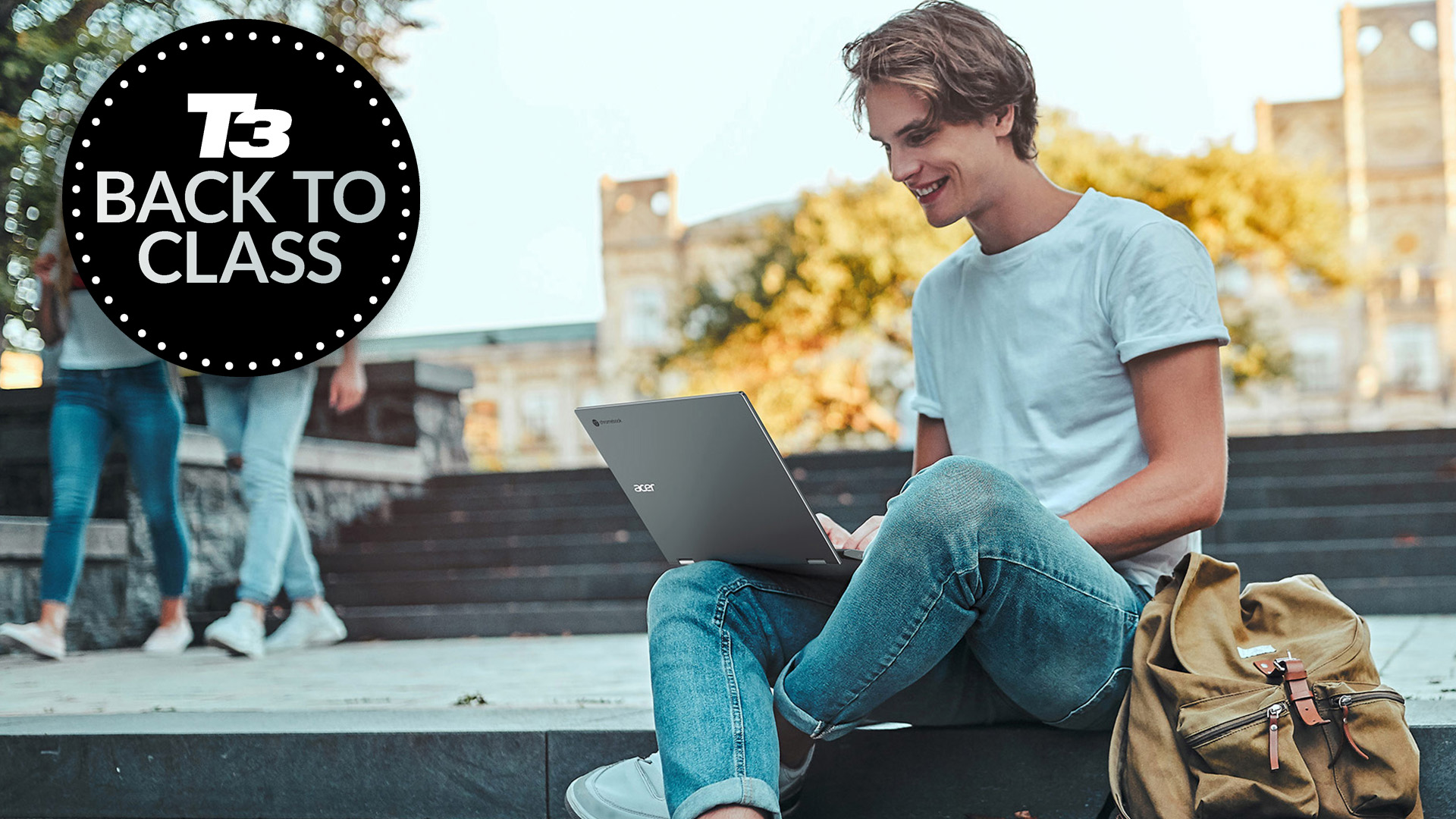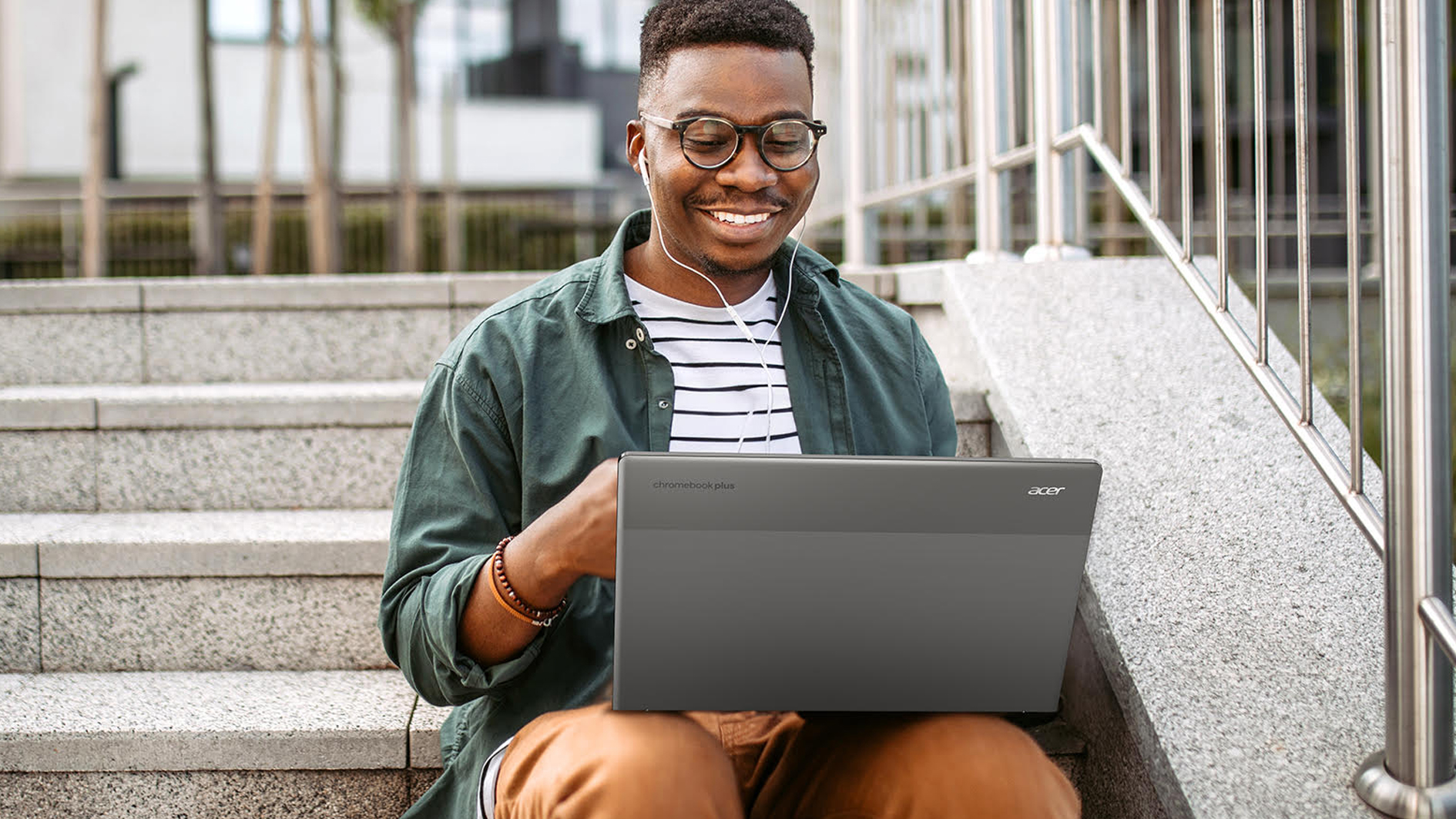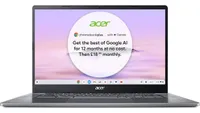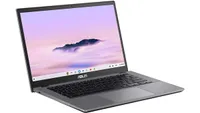Should I buy a Chromebook? Why the budget laptop is an ideal pick for students
The pros and the cons of picking up a Chromebook, explained


If you've been browsing our best Chromebooks guide then you might well be tempted into picking up one of these affordable, lightweight laptops – and we're here to explain why they're perfect for students who are getting ready for a new academic year.
Actually, they're perfect for anyone who wants to do their computing in a streamlined browser interface, without paying over the odds for hardware and features they don't need. Chromebooks typically cost significantly less than the best MacBooks or the best laptops running Windows.
That's not to say, though, that a Chromebook is ideal for everyone and every use case. There are some caveats and limitations to know about, but we're going to guide you carefully through everything you need to know, so you can make an informed decision.
Why you should buy a Chromebook

Chromebooks are clutter-free: the ChromeOS software that runs on Chromebooks is essentially made up of the Google Chrome browser and nothing else (though you can install Android apps too, if you need to). That means no bulky software packages or updates, which leaves you with a lean, streamlined computing experience.
Everything is backed up instantly: If all of the apps you're using are online ones, then you don't need to worry about backing up your work – it's all instantly saved in the cloud, ready for you to get at through any browser connected to the internet (at the same time, this solves the issue of having to sync all your files between different devices too).
You'll pay less for them: As Chromebooks are only really running the Chrome browser software (and maybe some Android apps), they don't need to be quite as powerful as a lot of comparable Windows or Mac laptops. That can end up meaning some significant savings for you, as Chromebooks are regularly some of the best cheap laptops around.
Why you shouldn't buy a Chromebook

There's no desktop software: The lack of desktop software keeps your computing experience nice and lightweight, but it also means you can't install big software tools such as high-end photo and video editing packages. You also have to stick to the web versions of apps such as Spotify and Slack, which may or may not be a problem for you.
They can be less powerful: this is another pro that's also kind of a con, because while less powerful components mean cheaper prices, they also mean these laptops aren't as speedy as many competitors. We'd recommend looking for models with the Chromebook Plus label attached, as this guarantees you're going to get a certain minimum spec.
You need an internet connection: Google has added offline support to apps including Gmail, Google Docs, Google Sheets, and Google Slides, but you still really need an internet connection to make full use of a Chromebook – so if you're spending a lot of time travelling where Wi-Fi might be an issue, these laptops maybe aren't for you.
Top 3 Chromebook picks in 2024
Lenovo IdeaPad Flex 5 Chromebook Plus: now £449 at Currys
Thanks to the 2-in-1 form factor of the 14-inch Lenovo IdeaPad Flex 5 Chromebook Plus, you can use it in a variety of configurations – and the Lenovo badge ensures a high build quality. Inside you get an Intel Core i3 processor, and a generous 256GB of storage.
Acer Chromebook Plus 515: now £299 at Amazon
This is what we mean when we say Chromebooks can be great value for money: for not very much money at all this gives you a 15.6-inch Chromebook Plus-branded laptop, with an Intel Core i3 processor and 8GB of RAM keeping ChromeOS humming along nicely.
Asus Chromebook Plus CX34: now £259.99 at Amazon
Asus has been building top-quality Chromebooks for many years now, and its expertise shows with this 14-inch laptop with Chromebook Plus status: you get 8GB of RAM and 128GB of internal storage, alongside an Intel Core i3 processor, and it's fantastic value for money.
Get all the latest news, reviews, deals and buying guides on gorgeous tech, home and active products from the T3 experts
Dave has over 20 years' experience in the tech journalism industry, covering hardware and software across mobile, computing, smart home, home entertainment, wearables, gaming and the web – you can find his writing online, in print, and even in the occasional scientific paper, across major tech titles like T3, TechRadar, Gizmodo and Wired. Outside of work, he enjoys long walks in the countryside, skiing down mountains, watching football matches (as long as his team is winning) and keeping up with the latest movies.



